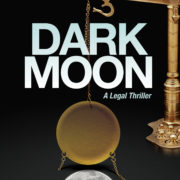More Baby Lawyer Adventures or Death by Courtroom
I began law school at the University of Tennessee in the summer of 1978. I had no idea what lawyers actually did, but liberal arts grads all around me were turning into them, so I figured I could, too. My then husband, like me an English major with a graduate degree and no teaching job, was happy to see me darken the legal doors of learning.
I came out in 1981, number two in my class, and still without much of an idea of what lawyers did. For three years I had done what I excelled at – read, memorize, and regurgitate facts – but I had never been inside a courtroom or taken a deposition or even seen a real live client. I had done one mock oral argument in moot court my first year with sweaty hands, a dry mouth, and a heart slamming in my chest. That was the entire extent of my “practical training” in law school. (Think medical school where you memorize the symptoms of every disease on earth but never see a body, dead or alive.)
At first being a lawyer wasn’t so bad. I’d accepted a job with a Big Firm in Virginia where I had family, and they paid me to study for the bar all summer, sitting in the apartment they rented for me and my husband. I watched the ducks swim on the pond out back and re-memorized all the law I’d learned in three years of law school. This time, Virginia style.
On the day before Princess Diana married Prince Charles, I drove to Roanoke where I stayed in the hotel room The Firm paid for. Next morning, I put on my lawyer suit, went to the Civic Center, and sat at a long table where I took the Virginia Bar under the watchful eye of the Bar Examiners IN PERSON. They sat on a dias above us and watched us spill our brains into blue books for two, very long days. (Weren’t they bored to death?) At night, I ate room service and watched the royal wedding.
Perhaps the fate of that marriage was a metaphor for the fate of my Big Firm career.
On my thirty-first birthday in August, I put on my lawyer suit again – this time supposedly for good – and took my place in my tiny office at The Firm in the litigation section. Until the Bar Examiners certified me as “passed,” I could not sign pleadings or take depositions or appear in court as anything except a clerk. And that was just fine with me. I wrote research memoranda that, as one senior lawyer observed, he could actually follow and understand. What a concept!
But my luck ran out in October. The day after I passed the bar, I was sent to court with the Firm’s Tallest Partner (I am five feet two), to oppose an injunction that Legal Aid was seeking against one of Our Most Powerful Clients. The Firm’s Tallest Partner was only there to watch me; I was the performing bear that afternoon. Of course, it was not a major matter (or they wouldn’t have sent newly-minted lawyer me); but, as far as I was concerned, it was The End of The World.
I didn’t even know which table to stand behind in the courtroom. And what questions to ask my witness? OMG. No CLUE. I used up at least three of my nine lives that afternoon, standing mute behind the defendant’s table, listening to the judge tell me he didn’t believe my witness. (While I wondered what the witness had actually said and what to say to a judge who says your witness is lying.)
A couple of miserable hours later, the Firm’s Tallest Partner, who had watched me demonstrate total incompetence in that courtroom, walked me back to The Firm in a steady downpour, with no umbrellas. My client had been enjoined, big time. Or small time, really; but it didn’t feel that way to me. It was my own personal Trail of Tears. The Firm’s Tallest Partner had nothing to say to me on the way back. I wondered if I’d offered to throw myself in the James River, if he would have given me a push.
Never mind that I had been a successful English graduate student, teaching three sections of freshman composition per semester. Never mind that I could take kids from writing C themes to A themes and have them laughing all the way. (Beware the flying commas!) Never mind that I could recite the Rules of Evidence backward and forward, and I actually understood Constitutional Law, including the dreaded Commerce Clause. Law on the hoof was a very different animal than in the classroom, my home turf. Teaching colleagues had always said they could stand in the hallway and know which class was mine because that was the room that the laughter was coming out of. Judges don’t laugh. Killer creative comedic timing is a useless skill before THEIR HONORS.
So for the next two years, I struggled to figure out the alien world I had landed in by mistake. Next time: More Baby Lawyer Adventures or The Judge who Taught Me Why You Never Change the Words and Still to Come: the Female Partner Who wore HATS and Ate Associates for Breakfast and High Tea
Below: the James River


